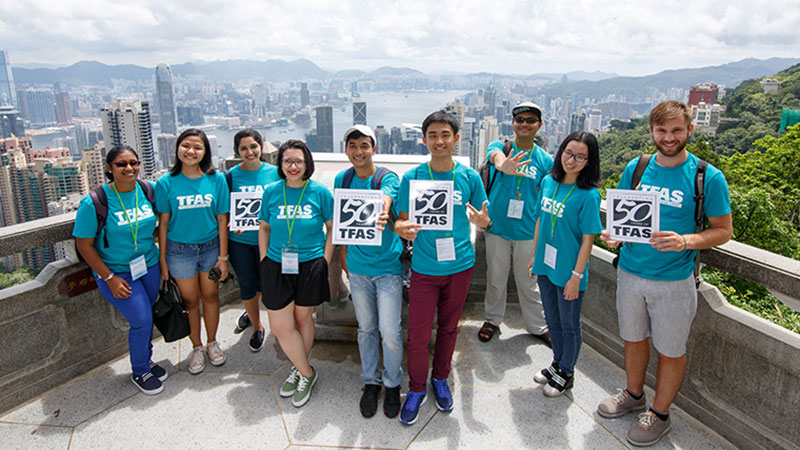
From July 8 to 29, just over 200 students from more than 50 countries explored comparative political and economic systems while learning about each other’s countries and cultures in the TFAS international summer programs in Hong Kong and Prague. This year marked the 15th anniversary of the Asia Institute for Political Economy (AIPE) program in Hong Kong and the summer of 2018 will mark the 25th anniversary of the American Institute on Political and Economic Systems (AIPES) program in Prague.
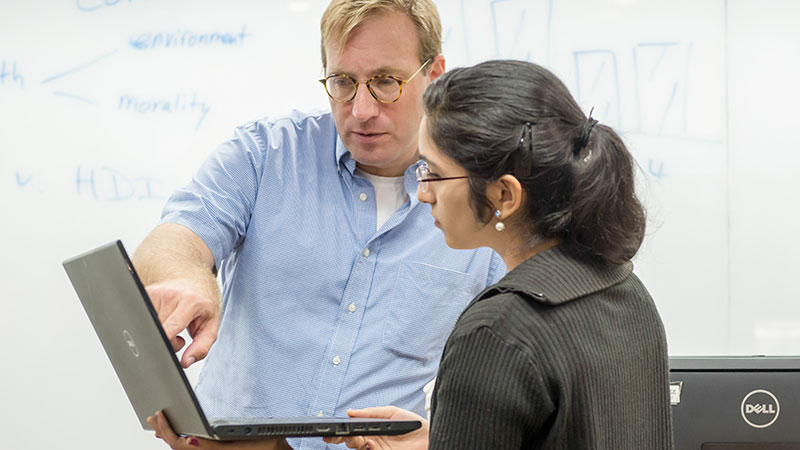
HONG KONG: Asia Institute for Political Economy (AIPE)
The AIPE class of 2017 began when 71 students from 17 countries convened in Hong Kong for three weeks of courses, interactive activities, tours of the city and site visits to museums, the Hong Kong Legislative Council and Hong Kong Monetary Authority. The students had the opportunity to take a political economy course with Dr. Nikolai G. Wenzel, a four-time AIPE professor and economics professor at Fayetteville State University in North Carolina, USA. Wenzel opened his class with a trade game, drawn from the Foundation for Teaching Economics (FTE) curriculum, which gave students a hands-on lesson in economics. Each received a randomly distributed gift and had to negotiate to trade gifts they desired less for gifts they valued more. While the game inspired plenty of laughs among the students, it also underscored that the ability to trade freely can increase happiness.
Wenzel strove to show in class how the broad economics concepts he taught were, in fact, very relevant to the students’ lives, and always very timely. He said of the course material, “The timing is important – as countries around the world choose between liberty and interventionism – to be teaching the foundations of liberty and free-market economics.”
As a former refugee, I understand the true value of an education. The classes offered at AIPE were not only academically challenging but also intellectually stimulating.”
– Fawad Alizada (AIPES 16, AIPE 17), USA
Maria Castaneda (AIPE 17) of the Philippines found motivation in the course material. “AIPE enabled me to understand politics and economics from the liberal perspective,” she said. “In this program, I learned about traditions and institutions that are rooted in and geared toward the preservation of freedom. The emphasis on the lessons of liberty was particularly relevant when we look at the state of the world today. AIPE influenced both my understanding of the world now and my dream of how the world should be. It widened my perspective of our problems and enabled me to think about different solutions.”
Over the years, the program has attracted top students from Asian countries and the U.S. These are future leaders and opinion-shapers.”
– Dr. Nikolai G. Wenzel, AIPE professor of economics
First-time TFAS professor Dr. Charlotte “Charlie” Thomas of Mercer University in Georgia, USA taught the political philosophy course, bringing a new voice to the program. Offering the students the benefits of her broad knowledge of philosophy and politics, she joined into the spirit of the program. “The world is full of every kind of diversity: racial, ethnic, religious, political, economic,” she said. “But, what AIPE immediately teaches a lucky group of students from all over the U.S. and Asia is that we are more alike than we are different. These brilliant, ambitious students are going to have positions of power and influence someday, and if they will remember their experience at TFAS, it will be harder for them to distance themselves from people who believe differently than they do, to give too much up to cultural difference, to villainize the other.”
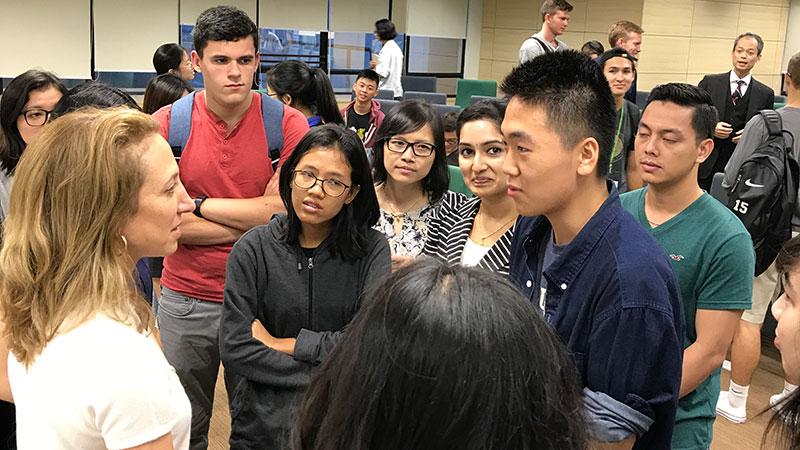
The students also heard from guest speakers like Tara Joseph, the new president of the American Chamber of Commerce in Hong Kong, whose talk the students raved about afterward. Other guests who shared their knowledge with the AIPE students included Dr. Ruiping Fan, the chair of the public policy department at City University of Hong Kong; Alan Seigrist, COO and partner of Energybox Limited; Jim Thompson, chairman of Crown Worldwide Group; and Andrew Work, the chief executive officer and publisher of Harbour Times magazine. Each brought a different perspective on policy and economics, both in general and in Hong Kong specifically. They helped to broaden the students’ views on how the city operates as a global economic powerhouse in a unique political landscape, and how governments and economies interact in other parts of the world.
Our professors were incredibly passionate about their respective fields and created an atmosphere that encouraged participation and stimulated debates.”
– Mridula Sairam (AIPE 17), India & Singapore
The lessons of Professors Wenzel and Thomas and the guest speakers hit home for Myat Myat Mon (AIPE 17) of Myanmar, who works in the Myanmar Constitution Center Project, educating government officials. She reported, “I am sure that I will be able to apply the knowledge gained from AIPE in the upcoming trainings on the Myanmar Constitution and the economy.”
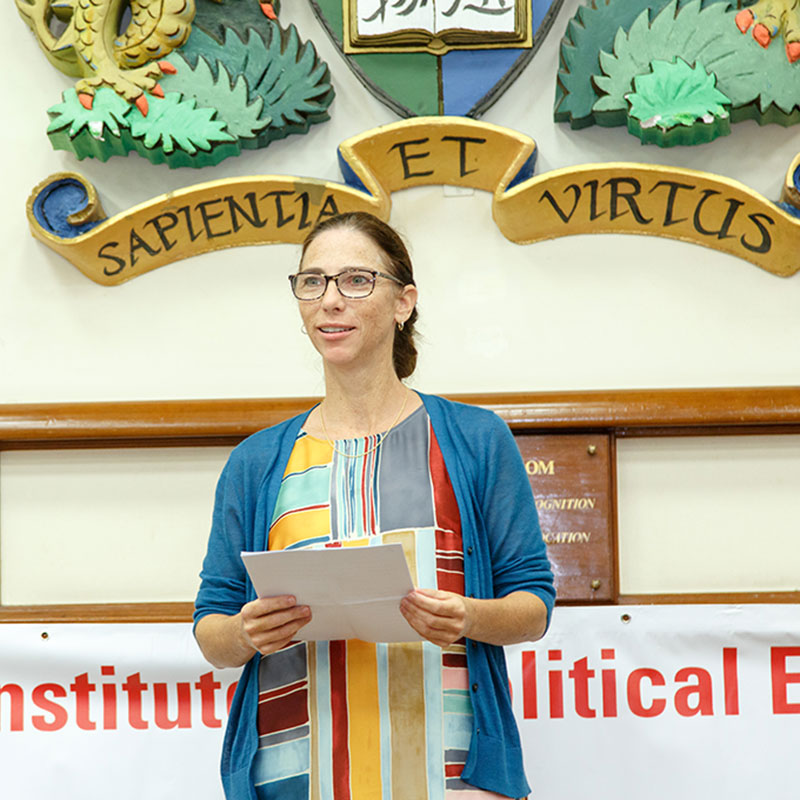
The course material inspired Fawad Alizada (AIPES 16, AIPE 17) of the U.S. so much that he found himself actively engaging with the concepts the entire three weeks, no matter where he was. “The lessons learned in class did not stay confined to its walls,” he said. “But rather we carried them everywhere we went. I remember discussing the different topics I learned at lunch, dinner and even on hikes. In fact, the lessons were so intellectually stimulating that I would often find myself harassing the professors in their free time. Yet they were always happy to discuss and answer any questions I had.”
The lessons of the AIPE coursework truly came alive for George “Trey” Grindley (AIPE 17) of the U.S. when he put his language skills and new political knowledge together for an incomparable opportunity. “Probably the most valuable part of the experience for me,” he said, “was the depth of cross-cultural relating that I was able to enjoy. Most notable was a four-hour conversation with one of my new friends from mainland China. We started a conversation (mostly in Mandarin) comparing American and Chinese political systems, debating the values of democracy and whether China would benefit from adopting it, in context of some of the authors that we had been reading together. Through our conversation, I got something that no amount of news reading can give me: a glimpse into the worldview of a college student in Beijing.”
[While] some anti-globalization motives are thriving in some parts of the world, I believe that programs like AIPE, which bring the value of liberty and freedom to different young people, can be a great force to deter the threats to liberty and can spread liberty globally.”
– Myat Myat Mon (AIPE 17), Myanmar
The program included cultural presentations, where students from each country grouped together to teach others about their homes. Many came prepared with traditional dress, ready to show off the songs, dances, sparkle and color of their homelands. Most students found the evening’s festivities to be the highlight of the social activities during the program.
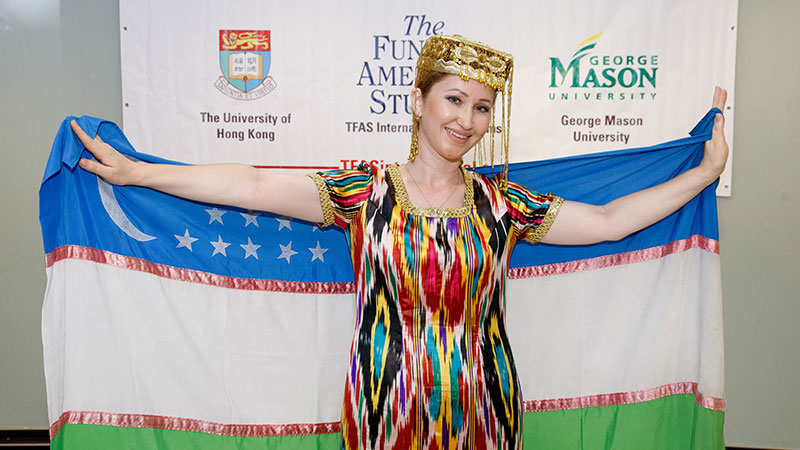
Though the AIPE program represented only a brief moment in the students’ lives, the experience was already promising to leave a mark even before it was finished. Kenneth Yan (AIPE 17) of Singapore recalled the most important lesson of the program for him, saying, “All in all, AIPE has shown me, time and time again over the course of three short but beautiful weeks, that communication and mutual understanding are crucial in forging a more peaceful, prosperous future for the next generation. And for such a thing to be possible, not only must we keep sharing our ideas, but we must also remember to listen to each other. Some beautiful things burn bright and fast, like fireworks, and though AIPE was over in less than a flash, it has left an indelible mark.”
The students left their temporary home of Hong Kong with unforgettable lessons and lifelong friends, joining the TFAS Alumni Network of nearly 17,000 leaders around the world.
PRAGUE: American Institute on Political and Economic Systems (AIPES)
The AIPES program similarly ran for three weeks in Prague, Czech Republic and brought together 113 students from 41 nations for courses on economics and comparative political systems, as well as an unparalleled chance to meet and learn about peers from all over the world.
When I watched us dancing, talking, drinking together, I kept thinking that our generation of Millennials is really the hope for a peaceful future. We are so interconnected and so sympathetic to each other – we do understand each other!”
– Anastassiya Fershtey (AIPES 17), Kazakhstan
In their courses, the students explored new ideas in an Old-World setting, soaking in the history and culture of the Czech Republic and neighboring countries as they absorbed new information. TFAS partnered with Charles University, the oldest and largest university in the Czech Republic, which offered course credit for the AIPES program.
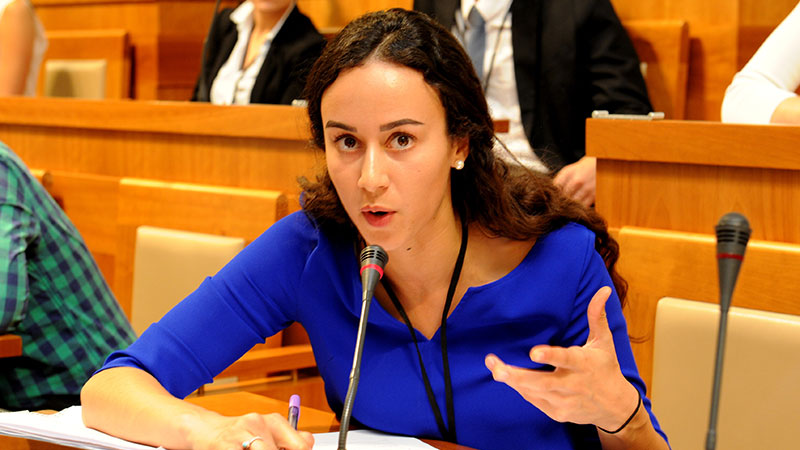
The students all took classes together on conflict management, political economy, political philosophy and ethics in society, complimented by study of democracies in transition and economics in transition. AIPES regulars Dr. Michael Collins, Dr. Ibrahim Al-Marashi (IIPES 01), Dr. Adam Martin and Dr. Joshua Mitchell taught the courses, helping the students earn an ambitious nine European Credit Transfer and Accumulation System (ECTS) credits, or 4.5 U.S. credit hours, in only three weeks. The classes focused on current hot topics and relevant lessons from history that impressed on the students the value of freedom in their personal leadership journeys, as well as on the national and international stage. “Young people around the globe are struggling to make sense of their world,” Professor Mitchell said, “The Prague program introduces them to ideas that are worth their weight in gold, which will help them understand what is happening around us.”
The students also had the opportunity to enrich their experience with presentations from special guest speakers. Dr. Pavol Demes, the first foreign minister of the Slovak Republic, spent several days with the AIPES students describing his experiences in former Czechoslovakia, living under communism and witnessing the Prague Spring and Soviet Invasion of 1968. He also shared his role in fostering the revolution in 1989, his experiences working in Vaclav Havel’s first cabinet and the challenges of building civil society in newly free and independent Slovakia.
In another rare opportunity, Dr. Ivan Miklos, former deputy prime minister and finance minister of Slovakia and current economic adviser to the government of Ukraine, educated the AIPES students on Slovak history. Dr. Miklos highlighted his successes reforming the Slovak economy from 1998–2006 through his implementation of free-market reforms. He also spoke about his current work with the Ministry of Economics and Finance in Ukraine since the revolution in February 2014.
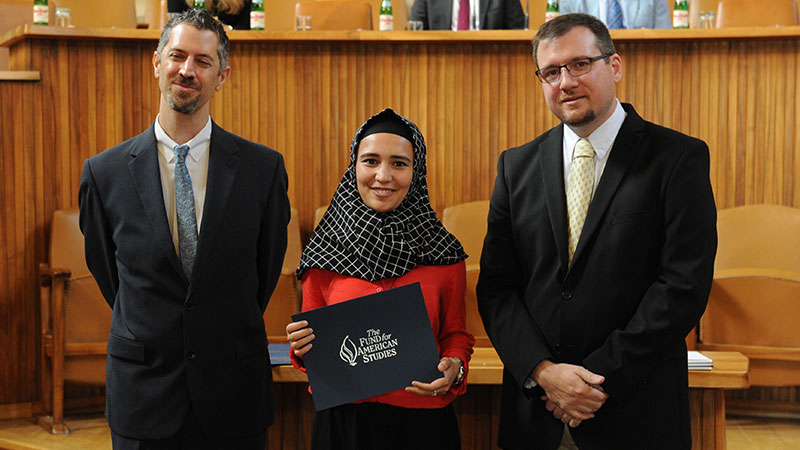
Outside the classroom, students had the opportunity to tour the city of Prague, see the Charles Bridge and Old Town Square a short walk from the campus, take part in a conflict management simulation held at the Czech Parliament and make excursions to the former ghetto and concentration camp, Terezin, and other historically significant places.
Though the program was brief, it was packed with information and experiences the students had already come to value and appreciate before it concluded. Yaroslav Pavliuk (AIPES 17) of Ukraine called the program, “extremely useful for me professionally and, more importantly, personally.” He explained, “AIPES helped me to understand some very important values – friendship, respect, responsibility. All activities taught me some important aspects of how to be a leader, how to communicate with others, how to analyze things. And, of course, the program inspired me to change my community and try to achieve standards proposed by AIPES.”
AIPES ended with students giving cultural presentations and taking part in a closing ceremony. For many of the students, the cultural presentations were especially poignant, as peers from rival nations put aside political differences and presented what was best about their nations. Sara Wehbe (AIPES 17) of Lebanon remarked on the evening: “It was beautiful and informative. Undoubtedly, what left a huge impression was the presentation of Pakistan and India. Where two countries have been at war more than 20 years, in 20 days, two of their people not only danced together but actually represented their countries. It took huge courage.”
If I could sum up AIPES with one memory, it would be my memory of seeing a Russian student hanging out with a Ukrainian student – their friendship transcended the conflict and tragedy between their two nations.”
– Mary Claire Rizzardi (AIPES 17), USA
Another student, Anastassiya Fershtey (AIPES 17) of Kazakhstan, found the cultural presentations to be among her favorite experiences of the program. “I enjoyed that night!” she said. “The thought that didn’t leave my head that night was: ‘We are all similar; there are just territorial state borders that separate us.’ What we all want is the same – we all want to be young and free, but most importantly, to bring some change and impact into the world domestically and internationally. We all want peace and stability. So, this night gave me an extra share of optimism and hope for a better future.”
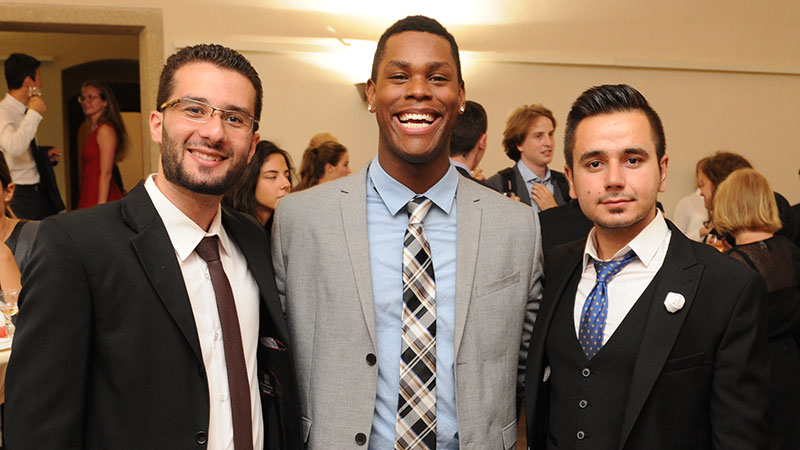
As the program concluded, in an AIPES tradition, TFAS staff presented the annual AIPES Freedom Award during the closing ceremony, allowing students another chance to hear about the inspiring work of freedom leaders. President Kolinda Grabar-Kitarović of Croatia received the 2017 award, but was not able to join the ceremony in Prague due to the severe wildfires in her home nation. Ambassador Ines Troha, the Croatian ambassador to the Czech Republic, delivered remarks on her behalf. Ambassador Troha’s remarks centered on the importance of relations between the EU and the U.S. She also stressed the importance of EU unity when confronting threats originating from anti-democratic forces in Europe.
After three brief weeks, the students headed home with new ideas and lifelong friends, now part of the TFAS Alumni Network of leaders worldwide. Mary Claire Rizzardi (AIPES 17) of the U.S. summed up her experiences, saying, “The people I met and the lessons I learned are beyond words – I will value AIPES forever, and not just because of the connections and career advantages it gives me. I love the friends I made there, and it simultaneously breaks my heart that we all live so far, but warms my heart that we can love each other despite our cultural differences and conflicts our countries have.”
The TFAS Alumni Network welcomes the AIPE and AIPES classes of 2017 to the family and invites them to stay connected by visiting TFAS.org/alumni. We invite new AIPE and AIPES alumni to connect with each other and other TFAS alumni by joining the TFAS Alumni Network Facebook Group.
To learn more about TFAS International Programs, please visit our international programs page.

